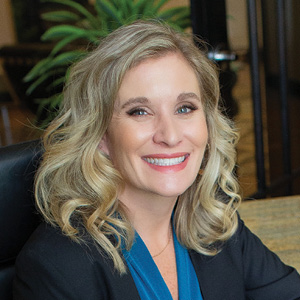Insights


Discover The Best Lawyers in Spain 2025 Edition
by Jennifer Verta
Highlighting Spain’s leading legal professionals and rising talents.

Unveiling the 2025 Best Lawyers Editions in Brazil, Mexico, Portugal and South Africa
by Jennifer Verta
Best Lawyers celebrates the finest in law, reaffirming its commitment to the global legal community.

Presenting the 2025 Best Lawyers Editions in Chile, Colombia, Peru and Puerto Rico
by Jennifer Verta
Celebrating top legal professionals in South America and the Caribbean.

How to Increase Your Online Visibility With a Legal Directory Profile
by Jennifer Verta
Maximize your firm’s reach with a legal directory profile.

Paramount Hit With NY Class Action Lawsuit Over Mass Layoffs
by Gregory Sirico
Paramount Global faces a class action lawsuit for allegedly violating New York's WARN Act after laying off 300+ employees without proper notice in September.

The Future of Family Law: 3 Top Trends Driving the Field
by Gregory Sirico
How technology, mental health awareness and alternative dispute resolution are transforming family law to better support evolving family dynamics.

Tampa Appeals Court ‘Sends Clear Message,” Ensuring School Tax Referendum Stays on Ballot
by Gregory Sirico
Hillsborough County's tax referendum is back on the 2024 ballot, promising $177 million for schools and empowering residents to decide the future of education.

The Human Cost
by Justin Smulison
2 new EU laws aim to reshape global business by enforcing ethical supply chains, focusing on human rights and sustainability

Effective Communication: A Conversation with Jefferson Fisher
by Jamilla Tabbara
The power of effective communication beyond the law.

The 2025 Legal Outlook Survey Results Are In
by Jennifer Verta
Discover what Best Lawyers honorees see ahead for the legal industry.

Safe Drinking Water Is the Law, First Nations Tell Canada in $1.1B Class Action
by Gregory Sirico
Canada's argument that it has "no legal obligation" to provide First Nations with clean drinking water has sparked a major human rights debate.

New Mass. Child Custody Bills Could Transform US Family Law
by Gregory Sirico
How new shared-parenting child custody bills may reshape family law in the state and set a national precedent.

The Best Lawyers Network: Global Recognition with Long-term Value
by Jamilla Tabbara
Learn how Best Lawyers' peer-review process helps recognized lawyers attract more clients and referral opportunities.

Jefferson Fisher: The Secrets to Influential Legal Marketing
by Jennifer Verta
How lawyers can apply Jefferson Fisher’s communication and marketing strategies to build trust, attract clients and grow their practice.

IN PARTNERSHIP
How DEI Executive Orders Will Impact Your Business
by The Wagner Law Group
The executive orders removing DEI initiatives will have varied affects on federal contractors, private sector employers and educational institutions.

Changes in Employment Arbitration for 2025
by Brandon D. Saxon, Debra Ellwood Meppen and Laurie Villanueva
What businesses need to know to stay ahead of the curve.

New Employment Law Recognizes Extraordinary Stress Is Everyday Reality for NY Lawyers
by Bryan Driscoll

Changes in California Employment Law for 2025
by Laurie Villanueva
What employers need to know to ensure compliance in the coming year and beyond

Legal Content Strategy: A Key Driver of Law Firm Growth
by Jamilla Tabbara
Is your law firm’s content missing the mark? Here’s why it’s not delivering results.

The Best Lawyers Network: Global Recognition with Long-term Value
by Jamilla Tabbara
Learn how Best Lawyers' peer-review process helps recognized lawyers attract more clients and referral opportunities.

Colorado Cleans Up Toxic Drinking Water With New Mining Pollution Law
by Gregory Sirico
Landmark Environmental Legislation Took 25 Years

Showcasing Legal Knowledge: Leveraging Success Stories
by Jamilla Tabbara
Let your firm's success stories speak for themselves.

6 Steps to Finding the Right Keywords for Your Legal Content
by Jamilla Tabbara
Follow a practical guide to keyword research and boost your law firm’s SEO to reach more potential clients.

Jefferson Fisher: The Secrets to Influential Legal Marketing
by Jennifer Verta
How lawyers can apply Jefferson Fisher’s communication and marketing strategies to build trust, attract clients and grow their practice.

IN PARTNERSHIP
How DEI Executive Orders Will Impact Your Business
by The Wagner Law Group
The executive orders removing DEI initiatives will have varied affects on federal contractors, private sector employers and educational institutions.

IN PARTNERSHIP
5 Things To Do if You’re at Fault in a Car Accident in Oklahoma
by Chris Hammons
The moments following an accident can be confusing and frightening, even if no one is seriously injured. Here are five things to do when at fault after a car accident in Oklahoma.

IN PARTNERSHIP
What Is the Average Settlement for an 18-Wheeler Accident in Texas?
by Ryan Zehl
After an 18-wheeler accident in Texas, individuals could face serious injuries and financial burdens. Consult with a truck accident lawyer.

IN PARTNERSHIP
5 Things to Consider When Choosing a Car Accident Lawyer in San Diego, CA
by Michael Pines
The success of any case is dependent on the attorney. Here are five things to consider before hiring a car accident attorney in San Diego.

IN PARTNERSHIP
Injured in An Accident in Fort Worth, TX? 5 Steps You Need to Take Immediately
by Bradley Parker
A Fort Worth, Texas lawyer explains the five most important steps that should be taken immediately in the event that you are injured in a car accident.

IN PARTNERSHIP
Benefits of Hiring an Attorney After a Car Accident
by Michael Hall III
Car accidents can cause life-altering injuries and financial setbacks. Hire a car accident attorney to stay prepared.

IN PARTNERSHIP
Understanding How Car Accident Lawyers Work on Your Case
by Kevin Roach
Car accident lawyers can be instrumental in helping clients recover financial compensation, allowing them to focus on recovery.

IN PARTNERSHIP
How to Deal with the Aftermath of a Car Accident
by Mark Roman
A crash can have physical, psychological and financial consequences. Here are five steps to take to effectively deal with the aftermath of a car accident.

Legal Content Strategy: A Key Driver of Law Firm Growth
by Jamilla Tabbara
Is your law firm’s content missing the mark? Here’s why it’s not delivering results.

The Best Lawyers Network: Global Recognition with Long-term Value
by Jamilla Tabbara
Learn how Best Lawyers' peer-review process helps recognized lawyers attract more clients and referral opportunities.

Showcasing Legal Knowledge: Leveraging Success Stories
by Jamilla Tabbara
Let your firm's success stories speak for themselves.

Is Your Law Firm’s Website Driving Clients Away?
by Jamilla Tabbara
Identify key website issues that may be affecting client engagement and retention.

6 Steps to Finding the Right Keywords for Your Legal Content
by Jamilla Tabbara
Follow a practical guide to keyword research and boost your law firm’s SEO to reach more potential clients.

How to Tell if Your Law Firm Lacks a Strong Brand Identity
by Jamilla Tabbara
Identifying branding gaps can help your law firm stand out and attract the right clients.

SEO for Law Firms: Overcoming Common Challenges
by Jamilla Tabbara
Tackle common SEO challenges and take the next step with our guide, How to Make Your Law Firm Easier to Find Online.

Looking to Increase Your Law Firm Website Traffic? Start Here
by Jamilla Tabbara
Explore our free resource to help increase your law firm website traffic and drive consistent growth.

Is Your Law Firm Missing Key Client Acquisition Opportunities?
by Jamilla Tabbara
Discover our free resource to identify ways to stand out and attract more clients.

The Secret to SEO Longevity: Evergreen Content for Law Firms
by Jamilla Tabbara
Discover how law firms can build adaptable evergreen content to boost SEO and stay relevant in the legal field.

Best Lawyers Legal Publications: Elevating Your Law Firm Through Targeted Print Marketing
by Jamilla Tabbara
Legal publications help law firms leverage print marketing to build credibility, connect with clients and stand out.

Best Lawyers: The Ultimate Legal Directory Option
by Jamilla Tabbara
How the right legal directory option can drive trust and growth.

How to Integrate Digital and Traditional Media for Law Firms
by Jamilla Tabbara
Bridge the gap between traditional and digital media to strengthen your law firm’s marketing approach.

7 Key Steps to Successful Social Media Campaigns for Lawyers
by Jamilla Tabbara
Effective strategies to boost your law firm’s social media presence and client engagement.














